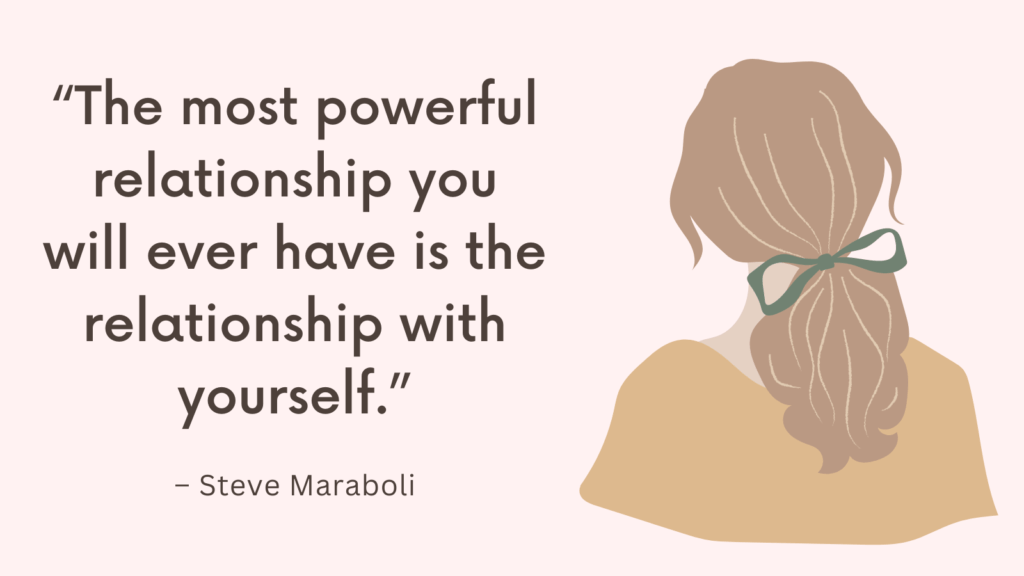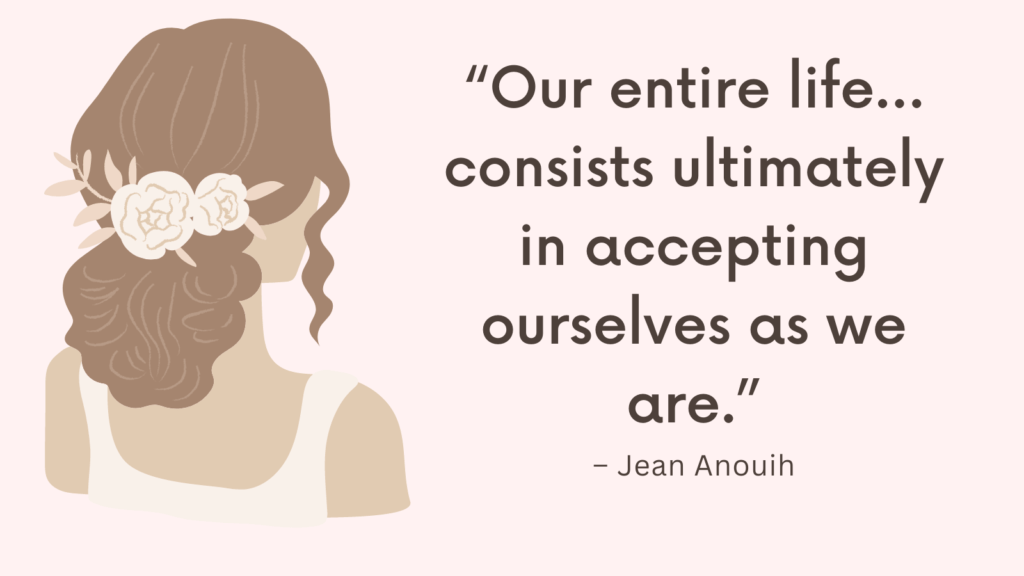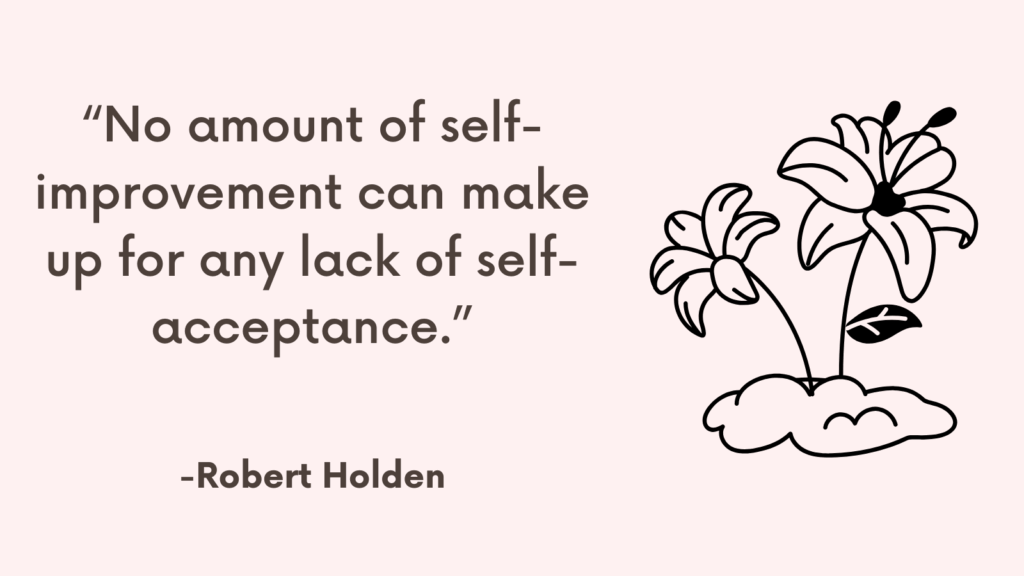In this post, you’re going to learn all about quiet confidence.
What Is Quiet Confidence?
Quiet confidence refers to a state of being self-assured and comfortable in one’s abilities and qualities, without the need for external validation or attention.
It is an inner sense of self-belief and security that manifests without arrogance or boastfulness. Individuals who possess quiet confidence often exude a calm and collected demeanor while displaying competence in their actions and decisions.
Quiet confidence is characterized by a sense of humility and authenticity. It is not about seeking attention or asserting dominance but rather about having trust in oneself and one’s capabilities.
People with quiet confidence tend to have a realistic understanding of their strengths and weaknesses and are secure enough to acknowledge and accept both.
Related: How Confident Am I Quiz (+Best 13 Tips on How to Carry Yourself with Confidence)
Why Develop Quiet Confidence?
The concept of quiet confidence is often associated with traits such as self-assurance, composure, resilience, and a healthy level of self-esteem.
It allows individuals to navigate challenges and setbacks with grace, maintain focus on their goals, and remain true to their values.
Developing quiet confidence can benefit individuals in various aspects of life, including personal relationships, career pursuits, and overall well-being.
It allows for a sense of inner stability and contentment, enabling individuals to embrace opportunities, take risks, and persevere through difficulties.
Related: Self Esteem vs Self Confidence
How to Cultivate Quiet Confidence?
Cultivating quiet confidence involves developing a strong sense of self-worth and belief in one’s abilities. Here are some strategies you can try to foster this inner strength:
1. Self-reflection
Cultivating quiet confidence begins with self-reflection, a process of looking deeply within ourselves to understand our strengths, weaknesses, and values.
By taking the time to reflect on our experiences, we gain a better understanding of who we are and what we are capable of achieving.
Self-reflection helps us identify our accomplishments, big or small, and recognize the progress we have made on our personal journeys.
It allows us to acknowledge our mistakes and learn from them, rather than dwelling on them with self-doubt.
For instance, if we made a mistake at work, instead of beating ourselves up over it, we can reflect on what went wrong and how we can improve in the future.
Through self-reflection, we also become more aware of our passions and interests, enabling us to pursue activities that genuinely align with our authentic selves.
Ultimately, this inner exploration leads to a stronger sense of self-assurance and a quiet confidence that radiates from within.
Related: Best 18 Journal Prompts For Confidence
2. Set realistic goals
To cultivate quiet confidence, it is important to set realistic goals that align with your abilities and strengths.
Setting achievable goals not only helps you stay motivated but also builds trust in your abilities, which in turn enhances your confidence.
When setting goals, it is crucial to consider the resources and time available to you, as well as any limitations or challenges that may arise along the way.
Remember that confidence comes from consistently achieving milestones and progressing towards your ultimate objective.
For instance, if you aspire to become a skilled public speaker, you could start by setting small, attainable goals such as giving a short presentation at a local club or improving your speaking skills through regular practice.
As you achieve these goals, your confidence will naturally grow, allowing you to tackle larger speaking engagements with ease.
It is also important to be patient with yourself and embrace a growth mindset.
Related: Lack Of Self Awareness: 5 Signs & 5 Tips On How To Increase Self-Awareness
3. Focus on competence
When you prioritize building your skills and knowledge, you naturally gain confidence in your abilities.
Take the time to identify areas you want to excel in and set specific goals for yourself.
By setting achievable targets and consistently working towards them, you will gradually reinforce your confidence.
For example, if you aspire to become a better public speaker, dedicate time to practicing and studying techniques used by successful speakers.
As you acquire more knowledge and enhance your skills, you will find yourself becoming more confident in your ability to deliver impactful presentations.
Related: Best 20 Tips On How To Let Go Of Perfectionism
4. Embrace failures and setbacks
Understand that failure is a natural part of life and everyone faces setbacks at some point.
By reframing your mindset and seeing failures as a stepping stone towards success, you can maintain a sense of inner calm and poise.
Reflect on your past setbacks and identify the lessons they have taught you.
Consider the skills or knowledge you have gained, the mistakes you have learned from, and the strength you have developed in the face of adversity.
For instance, if you stumble during a presentation, you can learn to embrace it as a chance to improve your public speaking skills and build emotional resilience.
Related: How To Be Gentle With Yourself? Top 5 Ways To Practice Self-Compassion
5. Practice self-care
Self-care involves prioritizing your physical, mental, and emotional well-being. It means taking the time to engage in activities that replenish and rejuvenate you, helping to build a strong foundation for self-assurance.
To begin, it is essential to listen to your body and provide it with the care it needs.
This can involve getting enough sleep, nourishing yourself with healthy foods, and engaging in regular exercise.
When you take care of your physical health, you feel more energized and capable, which can boost your confidence.
In addition to physical self-care, nurturing your mental well-being is equally important.
Engaging in activities that stimulate your intellectual curiosity, such as reading, learning new skills, or engaging in hobbies, can bolster your confidence.
By addressing our physical, mental, and emotional needs, we become more in tune with ourselves and develop a deeper understanding of who we are.
This self-awareness forms the foundation of quiet confidence, as we learn to trust and believe in our abilities and navigate life’s challenges with grace and poise.
Related: Top 45 Self Care Day Ideas at Home To Kickstart Your Self Care Ritual
6. Challenge negative thoughts
Negative thoughts can often hold us back from realizing our full potential and hinder our self-esteem.
By recognizing and challenging these negative thoughts, we can begin to shift our perspective and develop a more positive mindset.
For example, if we find ourselves thinking, “I’m not good enough,” we can question that belief by asking ourselves for evidence to support it.
More often than not, we will realize that there is no concrete evidence to support such a negative thought.
Instead, we can focus on our strengths, accomplishments, and past successes, which will help build a sense of quiet confidence.
Related: Negative Core Beliefs List (& 8 Tips On How To Challenge Them)
7. Seek support
One of the best ways to build confidence is by surrounding yourself with a positive and encouraging network of friends, family, or mentors who believe in your abilities and aspirations.
Having these supportive individuals in your life can provide a solid foundation for cultivating self-assurance.
Moreover, seeking support allows you to share your fears, doubts, and insecurities with someone you trust, which can help alleviate the burden and provide valuable perspective.
Support can come in many forms, such as joining a support group or seeking therapy.
These resources provide a safe space to explore your emotions and experiences openly, allowing you to gain insight into yourself and develop strategies for building confidence.
Additionally, engaging in activities like workshops, seminars, or educational programs can expose you to new ideas and perspectives, pushing you out of your comfort zone and fostering personal growth.
It’s important to note that seeking support does not signify weakness or dependency; rather, it demonstrates strength and a commitment to personal development.
It takes courage to acknowledge areas where growth is needed and actively seek assistance.
Related: Best 7 Books On How To Control Your Emotions
8. Practice mindfulness
Mindfulness involves bringing awareness to the present moment without judgment, allowing us to develop a deeper sense of self and understanding of our thoughts and emotions.
By incorporating mindfulness into our daily lives, we can learn to embrace our strengths, acknowledge our limitations, and let go of self-doubt.
One way to practice mindfulness is through meditation.
Set aside a few minutes each day to sit in a quiet space, closing your eyes and focusing on your breath.
As you become more attuned to your breath, observe any thoughts or distractions that arise without getting attached to them.
Over time, this practice helps to cultivate a sense of calm and centeredness, allowing you to approach challenges with greater composure and inner strength.
Related: Best 8 Mindfulness Exercises For Adults That Will Help You Regulate Your Emotions

FAQ
How is quiet confidence different from arrogance?
Quiet confidence is characterized by humility, while arrogance is marked by an exaggerated sense of self-importance.
Quietly confident individuals acknowledge their strengths and achievements without belittling others or seeking constant admiration.
Can anyone develop quiet confidence?
Yes, anyone can develop quiet confidence.
It is not an innate trait but rather a skill that can be cultivated through self-reflection, practice, and personal growth.
Related: Best 10 Confidence Books
Are there any potential drawbacks to quiet confidence?
While quiet confidence has many advantages, it’s important to ensure that it doesn’t lead to excessive self-reliance or an unwillingness to seek support when needed.
Balancing confidence with a willingness to learn from others is crucial.



